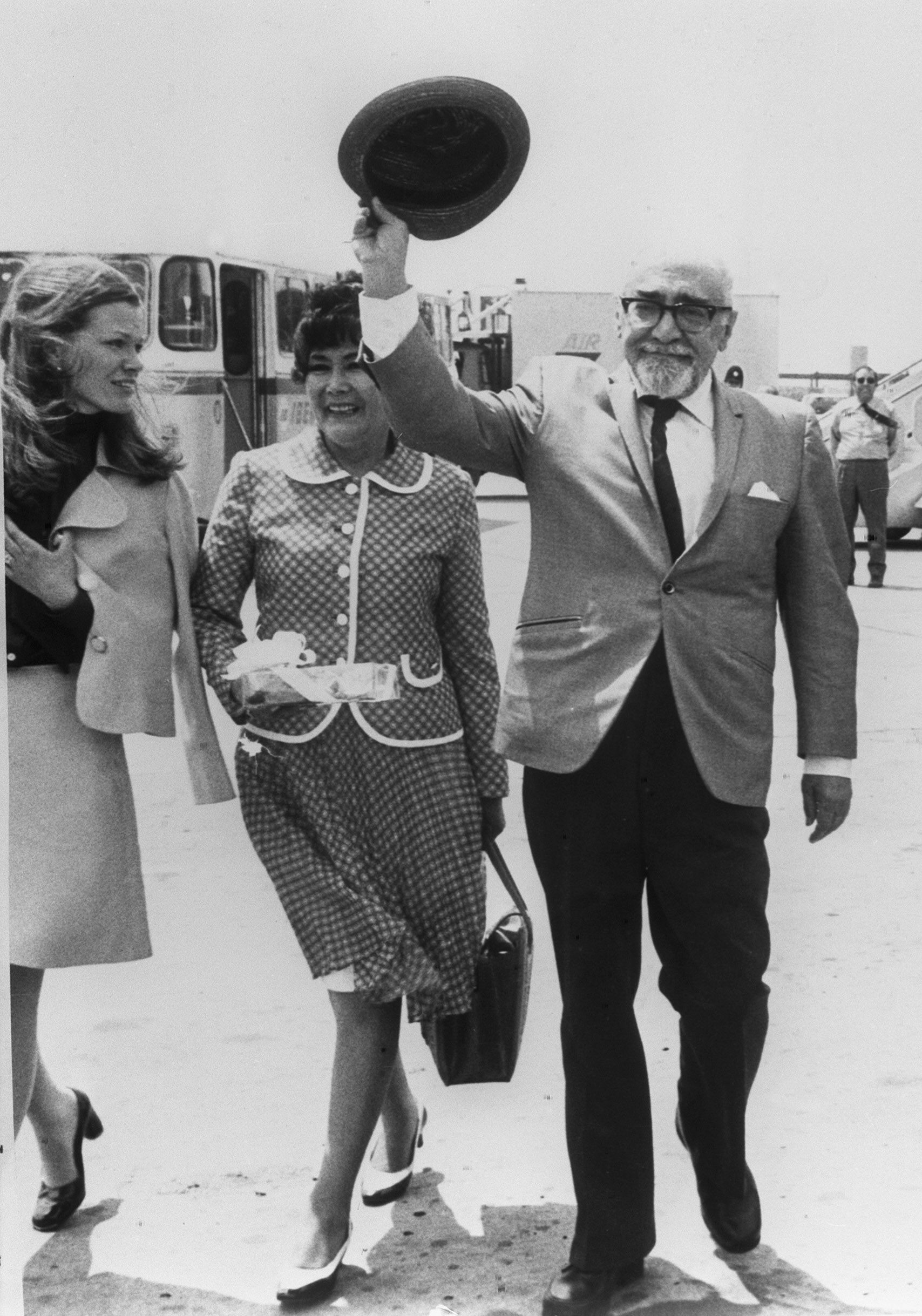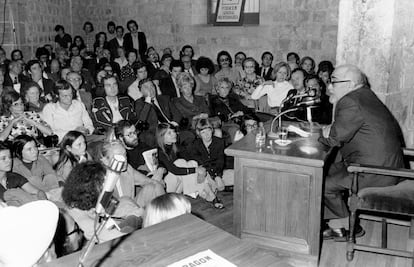Ramón J. Sender (1901-1982) was born to the compass of the twentieth century in “that heat of the villages full of silences”, as he remembered in the first volume of Alba Chronicle. It was a heat “in which pigeons seek the shadow and time seems to stop and acquire depth in a thousand small rumors.” Like the Inuits, which distinguish a million tones in the snow target, that solitary child of Chalamera (Huesca) learned to decompose silence and boredom in millions of modulations, and with his fine ear it became the great chronicler of the century that was born with him.
The child José Garcés de Alba Chronicle “The great heteronym of Sender in those false novel memories,” escaped from the father’s surveillance, climbing the roof with twins, and staring at the town from their observation post next to the fireplace. It is easy to recognize the adult writer in the attitude of that carefree kid who prefers to hunt crickets to get the latins in La Mollera. It is easy to understand that Sender looks at himself vigilant, always corner, as attentive as discreet, the guy who camouflages himself in the general picture, but understands and narrates it later with precise and simple words.
Last year he ended with two good news for lovers of this impertinent and direct chivato. The Castro Library has begun to publish part of its works, with a first volume dedicated to its chosen narrative, which includes three essential novels: Imán, Mr. Witt in the canton y Requiem for a Spanish peasantwith a preliminary study by Professor Juan Carlos Ara Torralba. On the other hand, the Deusto publishing house has recovered Counterattackthe very personal chronicle of the first months of the Spanish Civil War.
Unlike the novels gathered in the volume of the Castro Foundation, which are part of the Canon of Contemporary Spanish Literature and were successful and many readers, Counterattack It is a little read book, which produced stings in the author. Published in 1937 as a propaganda pamphlet, it did not circulate again until 1978, when the exiles had already returned and Sender went and went to Spain from their home in San Diego, in California. The Sender of that time renegotiated the communist Sender of yesterday.
Without the support of its author, Counterattack It sank into indifference, as a strange piece, the result of a slightly shameful warrior ardor and bisoñas and wrong political passions. But today, when the war has returned to Europe with its bombs and its rhetoric, this raw description of the soldier challenges the reader taking him for the flaps. In historical terms, it is also an exceptional document, since it is one of the few Spanish war novels. In Spain, much has been written about the war, but very little from the front line of the front or with the military gaze of the narrator of Counterattack.
It is a weird bug in Spanish literature, despite its popularity and recognition, or precisely due to them. It was as ubiquitous as it was misplaced: I was everywhere, but it didn’t fit any. He was not a avant -garde writer (despite the hallucinated prose of The Equinoctial Adventure of Lope de Aguirre Already many books of the sixties and seventies, infected by the heavy, solemn and falsely playful spirit of his time), his novels connect more with Baroja and Galdós than with the “Nivolas” of Unamuno, and his condition of chronicler determined to see him everything with his own eyes, without removing versions of third parties, he made him a writer who was free in a time. They photographed and censored. When he played portraying in a group, Sender was always in another place, chasing a chronicle in the last town of Andalusia or in the Moscow suburbs, hitting shots on the mountain or misunderstanding of youth communism and hugging the banal and capitalist joy of American life.

Therefore, when he returned from exile he disappointed so many. They waited for an old communist full of nostalgia and combat spirit, and they found a Guason Aragon who had no plans to reinstall in a country that preferred to see with the same ironic distance that applied to Nancy and the rest of their characters.
In that passage of Alba Chronicle In which José Garcés appreciates the nuances of silence from the roof of his house, supported by the chimney, the mystery of Sender is revealed. Not only tells us that he is a witness, an observer of the world, but an executor. Pepe Garcés is a child who likes to play war. That he is dedicated to observing in the afternoon does not mean that he renounces to participate in the world. He gets into the gresca, animates it, causes trouble, melts in the dough, and then he has the same naturalness with which he shoots at the pigeons or against those of the town next door in the children’s battles, so similar to the adult bomb battles and machine gun.
So he did his whole life. His first great novel, Magnettell his life as a soldier in Morocco, and from Blocao perceives silences and nuances with the same fineness as in the roof of his Aragonese village. That African war will return recurrently in exile (High cabrerizas, A bonfire at night), like the posttraumatic stress that accompanied the survivors and that he dragged into books. As the war of 1936 will return again and again, condensed in that masterpiece of the concise, almost a fable, Requiem for a Spanish peasant.

After his death in 1982, Sender has remained ubiquitous and misplaced at the same time. Unlike other authors of exile, the readers’ horizon has never disappeared completely, but posterity remains without cataloging it. He has ended up forming a group with other rare and disenchanted, such as Max Aub. It costs to demarcate the chronicler’s propagandist, the fabulator fighter, and the nostalgic debt and swept pain for the death of his family, of the mundane and cynical Hispanicist who enjoys the life of campus to the friendly sun of California. In Sender, everything mixes unchistantly for the critic addicted to taxonomies. He plays literary hiding place with heteronyms and, at the same time, is exhibited naked and vulnerable. Simple and Barojiano in appearance; Complex and very dark as soon as the same attention is applied to its attention as Pepe Garcés applied to the village silences.
Reissues are a precious opportunity to read as he read the world: attentive, without prejudice, without establishing relationships, seeking the essence of things beyond environmental noise.

